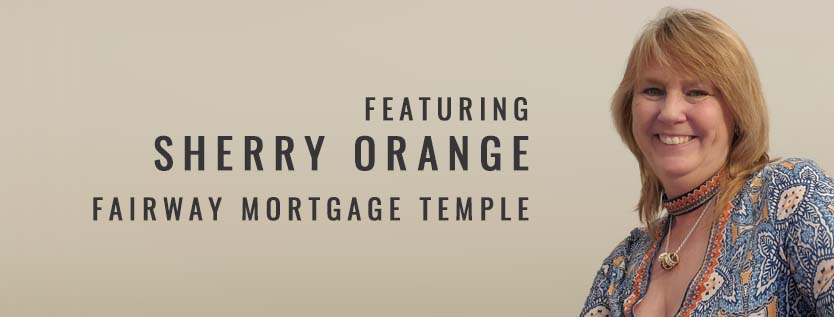What kind of mortgage should I get for the property I want?
We spoke with Sherry Orange, a Loan Officer with Fairway Mortgage in Temple, Texas to discover how central texas homebuyers can get the property they want in a seller’s market. After getting that all-important pre-approval letter, the next step is being crystal clear with your lender about the intended use for the property you’re eyeing. Enjoy!
The most common financing offered by an average lender is a home mortgage. But what about other types of real estate transactions? What if you want to buy a ranch, acquire an apartment building as an investment, or purchase a dream vacation home?
There are loan types that accommodate lots of think-outside-the-box property uses, and it’s important to pick the right one. It may sound like a minor detail, but if you aren’t up-front with a lender about your intention for a property, you could find yourself in trouble down the road. At the very least, you’ll experience the minor annoyance of pushing paper to get a loan that won’t meet your needs. But that’s nothing compared to finding out post-purchase that you can’t legally use the property the way you intended because of the way it was financed.
Not-So-Fun Fact
Occupancy fraud occurs when a borrower intentionally misleads a lender about how a property will be used, which can result in fines and even (yikes!) a one-way ticket to jail.
So how do I know what mortgage product to pick?
It’s pretty simple: A loan should match how you’ll use a property.
Jimmy Morales, a Sojourn Real Estate REALTOR®, explains that he asks new clients about the intended purpose of their purchase: “Once I find out what type of property a buyer’s looking for, such as a single-family home versus an investment property, I can direct them to a lender who handles that type of purchase.”
Why lenders worry
Loan programs targeted to specific uses take into account how those uses will affect the property. Loan Officer Sherry Orange of Fairway Mortgage in Temple, Texas, describes a nightmare scenario to explain why lenders want to be darn sure how you’re going to use a property: “Let’s say you buy a home and don’t tell the lender that you’re going to rent it out. If your renter is harmed due to a home defect and files a claim against you, your homeowner’s insurance isn’t going to cover that accident. You and the lender could be liable.”
Another worry for lenders is that because they actually own a portion of the property until the loan is paid back completely, a buyer who defaults on a loan could leave them stuck with a stinker. An improperly used property might be tough to resell.
Lean on a pro to pick your loan type
As Orange works with applicants early in the loan pre-approval process, she asks about how they intend to use the property they want to buy. “Loans have criteria that make them right for one type of use and not for others,” she says. “For instance, some loans work only for commercial properties. Or let’s say you want to buy a farm in Salado, you’d go to a special type of lender for that. If you want to buy a rental property in Belton, that’s another type of loan with distinct criteria. Want to buy a double-wide or manufactured home in Temple? Certain lenders will have specialized programs to help you.”
A knowledgeable REALTOR® and lender can work together to find you the loan that’s right for almost any type of purchase. If you’re ready to buy a property (no matter what its purpose!), our Sojourn Real Estate team will guide you every step of the way.
Common Mortgage Loan Types
Conventional
These loans are easy to qualify for if you’ve got a good credit history, stable employment, and at least a 3% down payment. Conventional mortgages are offered by traditional entities like banks, credit unions, and mortgage companies. Interest rates on these tend to be higher than with government-sponsored loans, but that downside is offset by increased flexibility in loan terms and fewer penalties and fees.
FHA
These loans were created by the Federal Housing Administration to give an assist to buyers who don’t qualify for conventional loans. These are a great choice for first-time homebuyers because they allow a fairly low down payment and have flexible income requirements. Ditto for buyers whose credit scores are “challenged.”
VA
Veterans Administration loans are offered to military service members, veterans, and surviving spouses. No down payment is required and interest rates are very low—but the catch is that a property must meet very specific qualifications. The benefits of these loans are enormous for buyers without cash available for a down payment and/or who want to turn a home into a rental when they eventually move out due to assignment to a military post elsewhere.
USDA
The US Department of Agriculture designed these loans to assist rural homebuyers who might not qualify for traditional home loans. There’s no down payment required and they offer extremely reasonable interest rates, so low- or very-low-income applicants with dicey credit aren’t turned away. This program also offers home-improvement loans and grants, so rural homeowners have a shot at fixing up a neglected property. There’s one caveat—the home can’t be turned into a rental property until after the loan is paid off.
What now?
If you have your pre-approval letter in hand and are ready to make a move on finding the perfect Central Texas property for you, our Sojourn Real Estate team will guide you every step of the way. Reach out to a Sojourn Real Estate Agent to learn what you can do to stand out from competing buyers and strike the best deal on the purchase of your dreams!


